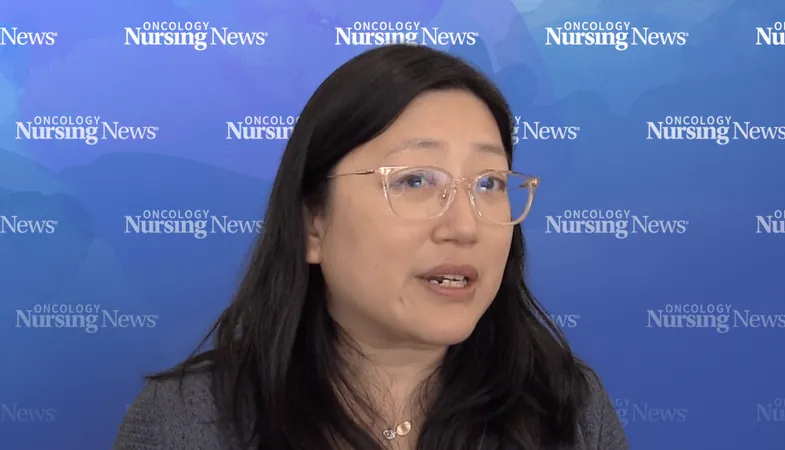
Essential Patient Counseling on T-DXd: Safety Tips Every Nurse Should Know!
2024-09-28
Introduction
Before initiating treatment with trastuzumab deruxtecan (T-DXd; Enhertu), oncology nurses play a crucial role in preparing patients for potential side effects, including nausea, hair loss, and the serious risk of interstitial lung disease. This essential information was highlighted by Dr. Nancy U. Lin, a leading oncology expert and professor at Harvard Medical School, during her presentation at the recent 2024 ESMO Congress.
Effectiveness of T-DXd
The phase 3b/4 DESTINY-Breast-12 trial has provided striking evidence of T-DXd's effectiveness in treating HER2-positive metastatic breast cancer, demonstrating significant response rates and extending progression-free survival even among patients with brain metastases. These groundbreaking results indicate T-DXd is a powerful tool in the ongoing battle against breast cancer, yet they come with a vital responsibility for healthcare providers to ensure informed consent and awareness of risks.
Managing Nausea and Vomiting
One of the primary concerns with T-DXd treatment is nausea and vomiting, which can severely diminish a patient's quality of life. Nurses should proactively educate patients about anti-emetics that can be used to manage these symptoms. Dr. Lin emphasized the importance of pre-medication strategies and the need for patients to know how to respond if they experience nausea following an infusion.
Addressing Hair Loss
Moreover, hair loss is another impactful side effect, affecting approximately 25-30% of patients undergoing treatment with T-DXd. Helping patients understand that not everyone will face this challenge is crucial for fostering a supportive environment. By preparing patients psychologically, nurses can alleviate potential distress related to hair loss.
Risk of Interstitial Lung Disease
Finally, the potential for interstitial lung disease is perhaps the most serious side effect associated with T-DXd. Symptoms such as shortness of breath and cough should be clearly communicated to patients and their families. Dr. Lin underlined the importance of vigilance, especially if patients find themselves in unfamiliar healthcare settings, such as while traveling. Identifying and addressing interstitial lung disease early on is critical to prevent severe complications.
Conclusion
As oncology treatments like T-DXd continue to evolve, the responsibility of nurses to educate and prepare patients becomes ever more significant. Those undertaking this therapy should be well-informed about the associated risks to promote proactive management and ensure the best possible outcomes.
Stay Tuned
Stay tuned for more updates on advanced treatments and best practices in oncology!
 Brasil (PT)
Brasil (PT)
 Canada (EN)
Canada (EN)
 Chile (ES)
Chile (ES)
 España (ES)
España (ES)
 France (FR)
France (FR)
 Hong Kong (EN)
Hong Kong (EN)
 Italia (IT)
Italia (IT)
 日本 (JA)
日本 (JA)
 Magyarország (HU)
Magyarország (HU)
 Norge (NO)
Norge (NO)
 Polska (PL)
Polska (PL)
 Schweiz (DE)
Schweiz (DE)
 Singapore (EN)
Singapore (EN)
 Sverige (SV)
Sverige (SV)
 Suomi (FI)
Suomi (FI)
 Türkiye (TR)
Türkiye (TR)